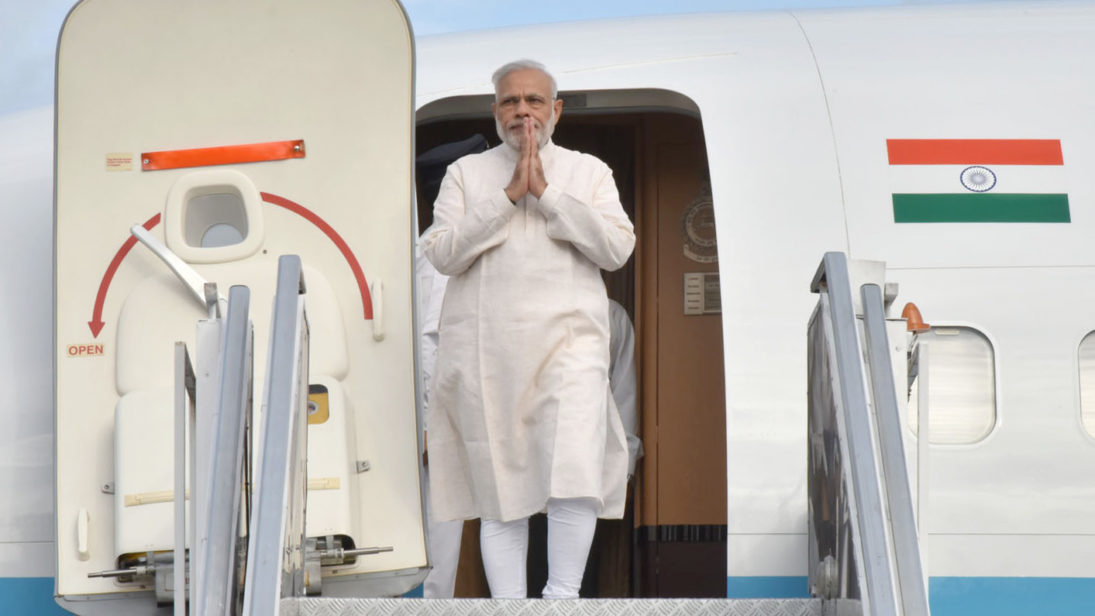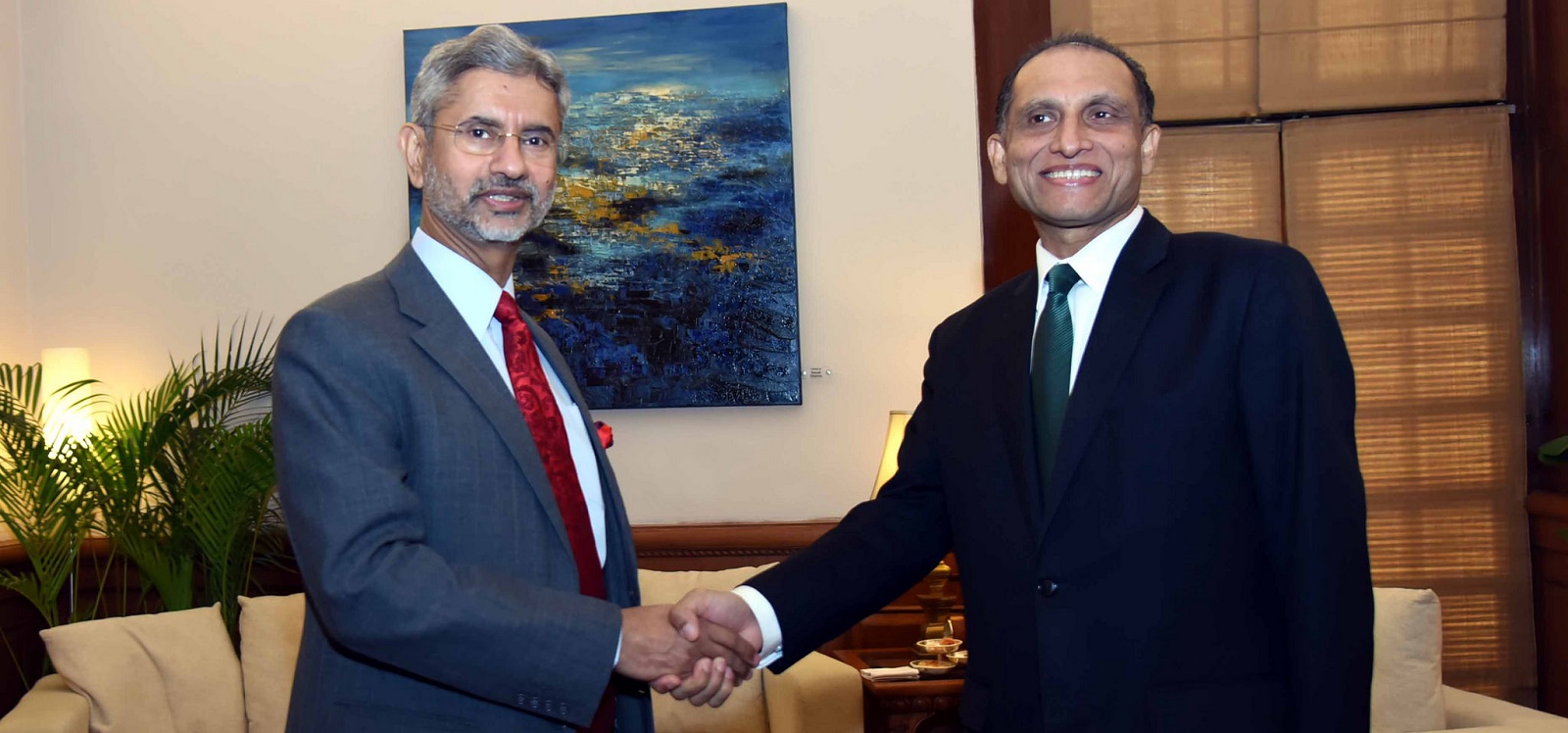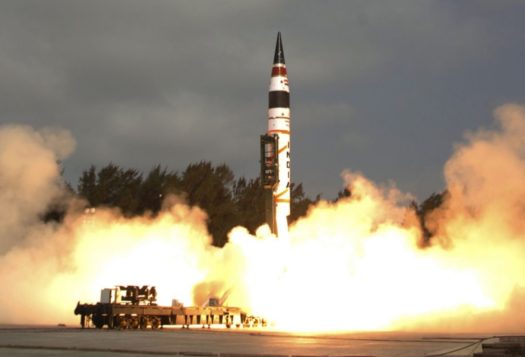
Uri Attack: Can India Pressure Pakistan to Behave Reasonably?
By: Sylvia Mishra
On September 18, an Indian Army infantry base in Uri was attacked and 18 Indian soldiers were killed. For the second time in a year, after the Pathankot attack in January, a symbol of India’s military establishment was attacked, and once again, it was attributed to Pakistan-based terrorists. These attacks enraged the Indian public, and calls for an appropriate response had been getting louder by the day. Ten days later, India claimed to have conducted ‘surgical strikes’ along the Line of Control to eliminate imminent terrorist infiltration and terror strikes in Jammu and Kashmir. While analysts had tabled a wide range of responses, from pursuing military action to abrogating the Indus Waters Treaty, India’s swift ‘surgical strikes’ with an element of surprise were intended as a reminder that India will not hesitate to take action against terrorists based in Pakistan and their supporters if they indulge in nefarious actions on Indian soil. However, India’s Director General of Military Operations, Lieutenant General Ranbir Singh, has categorically conveyed that India does not wish to conduct any further operations, and seeks Pakistan’s support in maintaining peace and tranquility.
Understandably, India could not have let repeated attacks on its soil go unchecked. However, going forward, New Delhi will need to conduct a realistic assessment of its long-term Pakistan policy, which needs to be comprehensive and multi-pronged, and which pushes Islamabad to take action to stop its support of Laskhar–e-Taiba (LeT) and Jaish-e-Mohammad (JeM).
The Uri attack once again highlights India’s dilemma as it seeks effective ways to deal with Pakistan, which has supported, trained, and financed anti-India terrorist groups. At a time when India is emerging as a leading power, New Delhi’s long-drawn approach must be one which is calibrated, mature, and reasoned, and has the backing of the international community. New Delhi is acutely aware of the constraints of its full-scale military options. In this regard, India’s former Chief of Naval Staff, Admiral Arun Prakash, provided a powerful reality check arguing that Indian policymakers need to be cognizant that demanding a “jaw for a tooth” strategy will not be easy because Pakistan’s armed forces are “no pushovers,” and maintain a huge advantage of steady military supplies from China. Therefore, given the limitations of military actions, India will continue to grapple with the conundrum of effectively countering Pakistan’s pursuit of low intensity conflict while not escalating nuclear tensions in the region. Thus, it may bode well if New Delhi manages to advance a two-pronged strategy: engage Pakistan’s military in dialogue while still reviewing options to diplomatically corner Pakistan.
Unfortunately, engaging the civilian leadership in Islamabad has not yielded a positive outcome. Indian Prime Minister Narendra Modi has already tried to build a rapport with the political leadership by inviting Pakistani Prime Minister Nawaz Sharif to his inauguration ceremony in May 2014. PM Modi also paid an unplanned visit to Sharif’s home in Lahore in December 2015, trying to generate goodwill and build confidence between the two countries. This engagement of the civilian government was aimed at bolstering Pakistan’s political leadership and in turn reducing the salience of the Pakistan Army. However, this process of engagement has not paved the way for resolution of bilateral differences. Instead, it appears that Pakistan’s powerful army and intelligence services have continued to provide support to home-grown terrorist outfits. While some analysts have criticized opening direct negotiations with Pakistan’s military, one cannot discount that India’s strategy of only focusing on the civil leadership has failed. Thus, New Delhi should consider engaging the military while still reviewing its other diplomatic options such as possibly revoking Pakistan’s most favored nation status.
Cooperation with the United States on counterterrorism is another key measure that should be considered. Thus far, the Obama administration has assured its support to India on the issue of terrorism with U.S. National Security Adviser Susan Rice speaking to her Indian counterpart Ajit Doval after the Uri attack. Furthermore, a recent U.S. Senate Committee on Foreign Relations hearing on Pakistan with Senator Bob Corker expressing frustration over Pakistan’s refusal to take decisive action against the Haqqani network, and a recently proposed bill—the ‘Pakistan State Sponsor of Terrorism Designation’ bill (HR 6069)—to designate Pakistan as a state sponsor of terrorism reflect the mood in Washington. This could be used as an opportunity by Indian policymakers to expand India’s already growing counterterrorism cooperation with the United States, to elicit favorable outcomes in addressing terrorism issues in the subcontinent.
Additionally, New Delhi should protest and make the international community take note of China’s consistent efforts to block India’s bid at the United Nations to ban JeM chief Masood Azhar. This kind of politics played by China only undermines Beijing’s credibility in tackling the issue of terrorism, and reflects poorly on a rising power willing to undertake global responsibilities.
All future actions undertaken by India will need to be in accordance with India’s status as a responsible power working in tandem with the United States and other Western countries to eradicate terrorism. The issue of terrorism is a burning one across the globe and Pakistan itself is a victim. The Uri attack gives India an opportunity to take action against terrorism while building an international consensus to get support for stymieing this pressing challenge. The attack in Uri is just as condemnable as the one in Pathankot, Gurdaspur, Mumbai, and sustained bloodletting of Indian soldiers by terrorists bred in Pakistan. New Delhi’s surgical strikes were aimed at protecting its citizens, and putting effective strategies of counterterrorism in place to pressurize Pakistan to behave rationally and reasonably.
Sylvia Mishra is a Visiting Fellow at the James Martin Center for Nonproliferation Studies, Middlebury Institute, Monterey and researcher at Observer Research Foundation, New Delhi.

Uri Attack: Managing Conflict through Legal Diplomacy
By: Sitara Noor
The recent attack on an Indian Army camp in Uri that killed 18 soldiers has increased existing tensions between nuclear rivals India and Pakistan. Predictably, India quickly blamed Pakistan for involvement in the attack even before an initial investigation could take place, while Pakistan immediately denied any responsibility. Of increasing concern is the jingoistic rhetoric in India pressuring the government to undertake “strict” action against the perpetrators. The Indian government faces a shrinking space for restraint as it confronts a credibility dilemma at the domestic level. For Pakistan, the timing of the Uri attack right before the United Nations General Assembly session was critical.
The attack and follow up reaction is a stark reminder that a potential India-Pakistan confrontation—whether subconventional, conventional, or nuclear—runs the risk of a regional catastrophe. India and Pakistan fought conventional wars in 1948 and 1965. India’s covert operations in former East Pakistan, through Mukti Bahini forces, lead to Pakistan’s dismemberment and the formation of Bangladesh in 1971. Pakistan moved fighters leftover from the Afghan jihad into Indian-administered Kashmir, thereby fuelling an ongoing freedom movement. After overt nuclearization, nuclear deterrence made conventional war a remote possibility, however, there is an increased and perpetual risk of sub-conventional activities leading to an inadvertent crisis.
A knee-jerk response to the Uri attack will end the atmosphere of restraint and cooperation built after the Pathankot attack. Although one can hope that both sides will find a peaceful resolution of all issues, the logical way forward for the time being seems to be cooperative legal diplomacy. India and Pakistan can use legal frameworks to communicate with each other and cooperate on contentious issues. Initiating legal diplomacy, however, will first require lowering of tensions and opening of communication channels with a genuine desire to resolve the issues.
It is worth recalling that Pakistan and India shared information not only on the investigations of the 2008 Mumbai attack and the 2016 Pathankot attack, but also on the investigation of the 2007 Samjhauta Expess train bomb blast in India by Hindu extremists that killed over 42 Pakistani citizens, and on Kulbhushan Yadav’s case, a former Indian Navy officer who admitted to facilitating numerous terrorist activities in Baluchistan and Karachi under direction from India’s Research & Analysis Wing (RAW). Ahmer Bilal Soofi, an eminent expert on international law, notes that the legal challenges in investigating transnational incidents is that they are “conspired in one jurisdiction and executed in the other.” He further explains that due to challenges such as the differences in Indian and Pakistani legal frameworks, witnesses residing in two different countries, and the absence of regular joint investigation meetings, the evidence provided is often not admissible in each other’s courts.
Regrettably, India and Pakistan have used these cases and trials as political point scoring against each other, which has resulted in both sides neglecting the legal components of the investigations to the satisfaction of the other state. Therefore, it is imperative for both states to provide actionable evidence for proper legal investigations. In addition, Pakistan needs to highlight all of the legal measures that it has taken in regards to the Mumbai and Pathankot cases even if India fails to reciprocate.
India’s recent claims of surgical strikes across the LoC and Pakistani officials’ denials that the strikes took place require closer evaluation over time. The contradictory claims from both sides and absence of any clear evidence has created an ambiguous situation. It, however, indicates that India is stepping away from a policy of restraint that might lead to escalation of tensions, making it even more important to have a realistic assessment of positions and moving forward through legal and diplomatic channels.
While such channels should be pursued, Pakistan must be on guard against India’s diplomatic blitzkrieg to isolate Pakistan and delegitimize its demands on Kashmir. Pakistan’s ongoing response must be rooted in its legal and political position on Kashmir, with the aim of ensuring that Kashmir’s indigenous freedom struggle does not become a victim of diplomatic failure.
We are witnessing a rhetorical war of narratives, limiting the space for logical solutions. More important, however, is recognizing that if the underlying causes of tension and legitimate concerns on both sides are not dealt with, the region will be doomed to another era of confrontation.
Sitara Noor is a Research Fellow at the Vienna Centre for Disarmament and Non-Proliferation (VCDNP) Vienna, Austria and can be reached at snoor@vcdnp.org. The opinions expressed above are those of the author and do not necessarily reflect the views of the organization.
***
Image 1: Press Information Bureau, India
Image 2: Indian foreign secretary S Jaishankar with Pakistan foreign secretary Aizaz Chaudhry in April 2016 (MEA Photo Gallery, Flickr)


